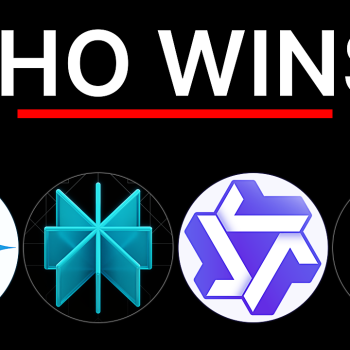ICOHTEC 2022
Call for Papers and Sessions
Technology-based and Technology-generated decisions
The 2022 International Committee for the History of Technology’s 49th Symposium will take place virtually. It will occur in 3 phases, each lasting two days. The 1st meeting will be in June (17, 18), the 2nd in September (24, 25), and the 3rd in October (15, 16). The Kranzberg Lecture will take place in June.
The general theme is “Technology-based and Technology-generated decisions”. Whereas technology-based decisions have a long history, technology-generated decisions of so-called artificial intelligence, AI, are on the horizon since the turn to 21st century and might gain decisive influence within the next years. Which decisions we are willing to handle over to technology? How to define ethical guidelines for this development? The symposium aims to contribute to this discussion, based on a transnational perspective of history of technology.
The deadline for proposal is Sunday, 30 January 2022
For a long time, societies have considered technology a value-neutral instrument for various purposes, including decision-making by organizations. Between the end of the 19th and the beginning of the 20th century, technology progressively increased its pivotal role in societies: governments, companies, or individual people considered technology essential for living and surviving. But due to increasing over-saturation with technology, negative outcomes became visible and thus, subject of public discussion.
Technology is involved in decision-making in two ways: decisions based on technology and technology-generated decisions. Human societies are used to base their decisions thanks to technologies permitting them, for instance, data collection. Cartography was helpful in decisions such as financing exploratory expeditions traveling, trade, or military operations since the early modern era. In the contemporary World, high-resolution satellite images are the base for the decision-making process in military operations or identifying places where it could be possible to extract mineral and oil resources. Moreover, new technologies often inspire new ways to perform old tasks (e.g., imaging technologies in medical diagnosis) and inspire taking on new tasks (think military rockets being applied to spaceflight). Second, the design and manufacture of technology require decisions that affect how it works, how it is used, how it is manufactured, etc. Certain decisions regarding material properties, usage scenarios (e.g., usability), and areas of application require different types of production. Conversely, the type of production chosen (technology, process, etc.) influences the possible uses of the technology and its artifacts.
Suggestions for more specific questions, derived from the main question:
- What are the social/historical/cultural conditions of technology related decision-making?
- Decisions on science and technology: inclusion and citizen participation
- What are the ethical conditions of technology-generated decisions?
- Which transnational perspectives can be taken regarding technology-inherent decisions?
- How do these technology-inherent decisions affect the critique of technology (e.g., impact factor in science, “publish or perish”)?
- Technocracy is a well-researched topic. What is state of the art in this field? Any new approaches, theories, empirical findings?
- Data recording and processing is a core task now carried out with computers. Which technologies were used – and where and how – before the advent of computing?
- Modern challenges and technology based/generated decisions (e.g., climate change, COVID-19 pandemic, individual health, and public health); artistic strategies involving technology/generated decisions; body, dis/ability and technology based/generated decisions
- The role of images (maps, photographs, etc.) in decision making.
The symposium covers all periods and all areas of the globe. In keeping with a cherished tradition of the field, the meeting is open to scholars from all disciplines and backgrounds. Gender-related and worldwide topics are specifically welcome. Besides contributions to the main theme of the symposium, paper and session proposals on different topics of the history of technology are welcome.
Proposal Guidelines
ICOHTEC welcomes proposals for individual papers and posters, but preference will be given to organised sessions of three or more papers. The Programme Committee will also consider submissions not directly related to the symposium theme providing that they relate to the history of technology broadly defined. All proposals must be in English, and should be submitted electronically by 30 January 2022 via our website http://www.icohtec.org/w-annual-meeting/ (will be available, soon). For suggestions about preparing your submission and the conference presentation, please consult the guidelines on www.icohtec.org/proposal-guidelines.html In addition to the scientific programme, the symposium will include plenary sessions, special sessions for the prize winning book and article, the general assembly of ICOHTEC. If you have any questions related to the scientific programme, paper, poster or session proposals, please, do not hesitate to contact Jacopo Pessina, the chair of the programme committee, at [email protected].
We especially encourage graduate students to submit proposals and to participate in the symposium.
Members of ICOHTEC and low-income people pay a reduced fee.
INDIVIDUAL PAPER proposals must include: (1) a 300-word (maximum) abstract; and (2) a one-page (maximum) CV. Abstracts should include the author’s name and email address, a short descriptive title, three to five key words, a concise statement of the thesis, a brief discussion of the sources, and a summary of the major conclusions. If you are submitting a paper proposal dealing with a particular subtheme in this CfP, please indicate this in your proposal. In preparing your paper, remember that presentations are not full-length articles. You will have no more than 20 minutes to speak, which is roughly equivalent to 8 double-spaced typed pages. For more suggestions about preparing your conference presentation, please consult the guidelines at the conference website. Contributors are encouraged to submit full-length versions of their papers after the conference for consideration by ICOHTEC’s peer-reviewed journal ICON.
PANEL proposals must include (1) an abstract of the panel (300 words maximum), listing the proposed papers and a session chairperson; (2) abstracts for each paper (300 words maximum); (3) a one-page CV (maximum) for each contributor and chairperson. Panels should consist of three or four speakers. Several panels may be organized on one topic.
We encourage the creation of panels which examine technology-based and technology-generated decisions in different parts of the world, enabling international comparisons, and contributing to an emerging transnational historiography. We welcome especially contributions from beyond Europe and the United States, which so far have been less fully covered by historians of technology.
The programme committee reserves the right to relocate papers to different themes and add papers to panels.
POSTER proposals must include (1) a 300-word (maximum) abstract; and (2) a one-page CV. Abstracts should include the author’s name and email address, a short descriptive title, a concise statement of the thesis, a brief discussion of the sources, and a summary of the major conclusions.
Programme Committee:
- Pessina Jacopo IT (Chair), [email protected]
- Florian Bettel AT, [email protected]
- Ercolani Sara IT – [email protected]
- Fari Simone IT/ES _ [email protected]
- Hadlaw Jan CA, [email protected]
- Limina Valentina IT – [email protected]
- Min Fanxiang CHI – [email protected]
- Müürsepp Peeter EST, [email protected]
- Schuetz Thomas GE , [email protected]
- Yagou Artemis (only for the evaluation of papers) GE/GR , [email protected]
- Zdrowska Magdalena PL , [email protected]
Maria Elvira Callapez
(PhD, History of Science and Technology,
Researcher, Center for the History of Science and Technology (CIUHCT), Faculdade de Ciências, Universidade de Lisboa
Visiting Scholar, Center for Science, Technology, Medicine, and Society, University of California, Berkeley
Secretary-General of the International Committee for the History of Technology (ICOHTEC)













